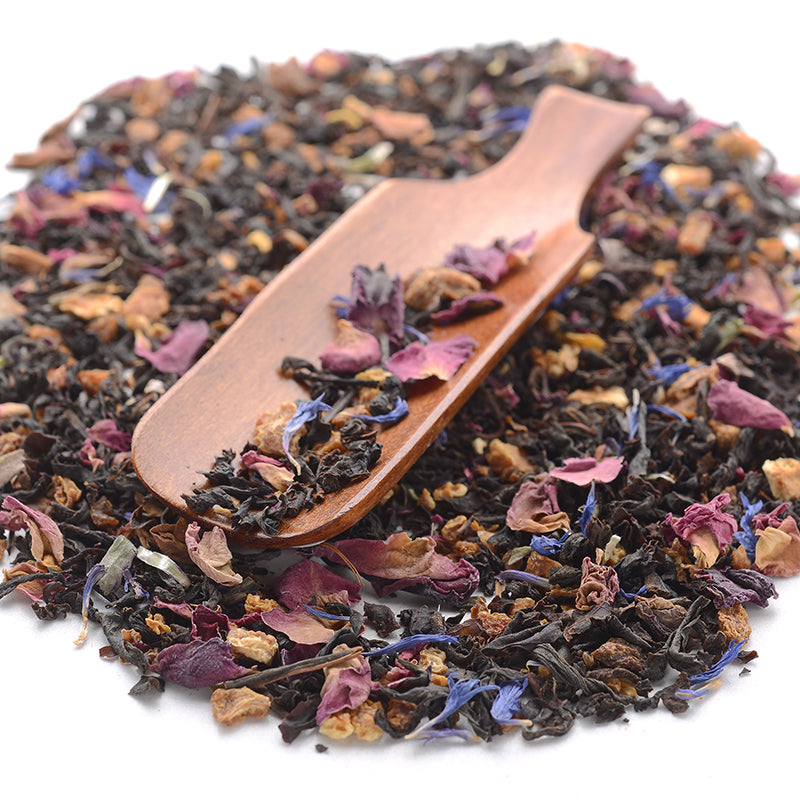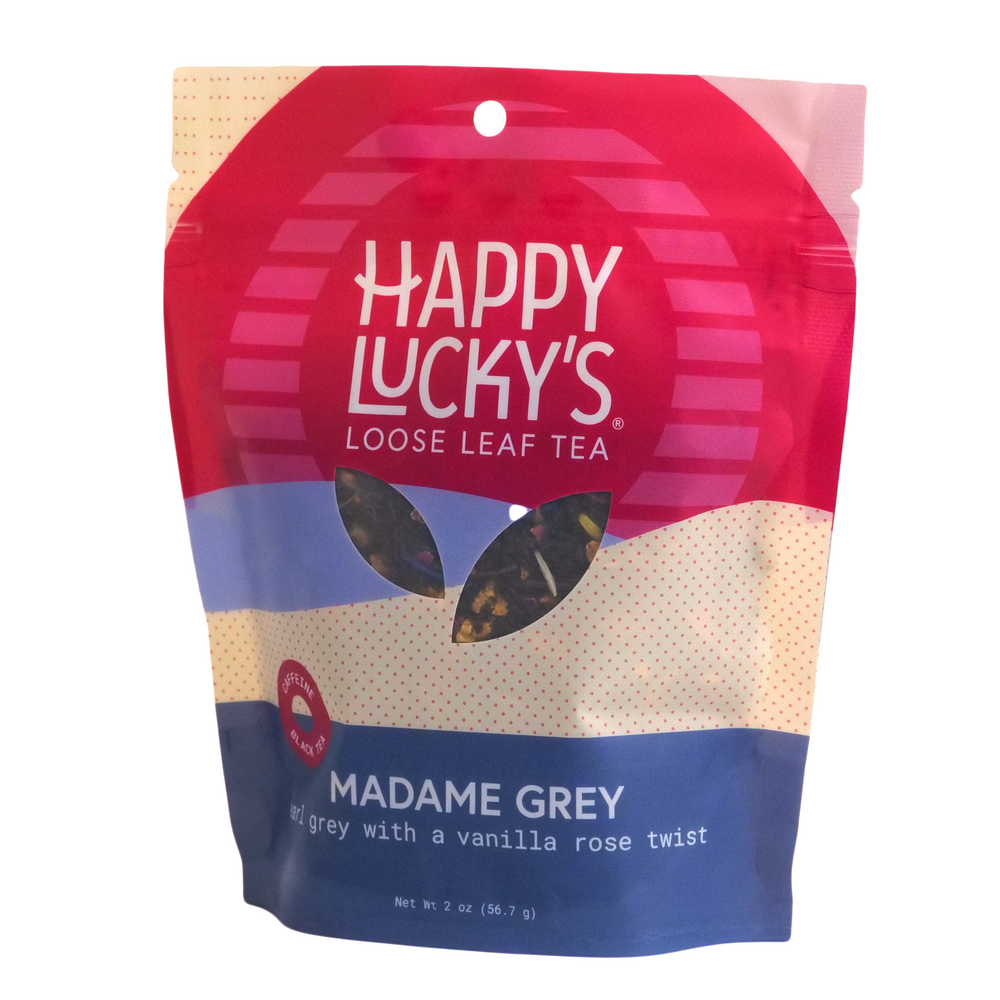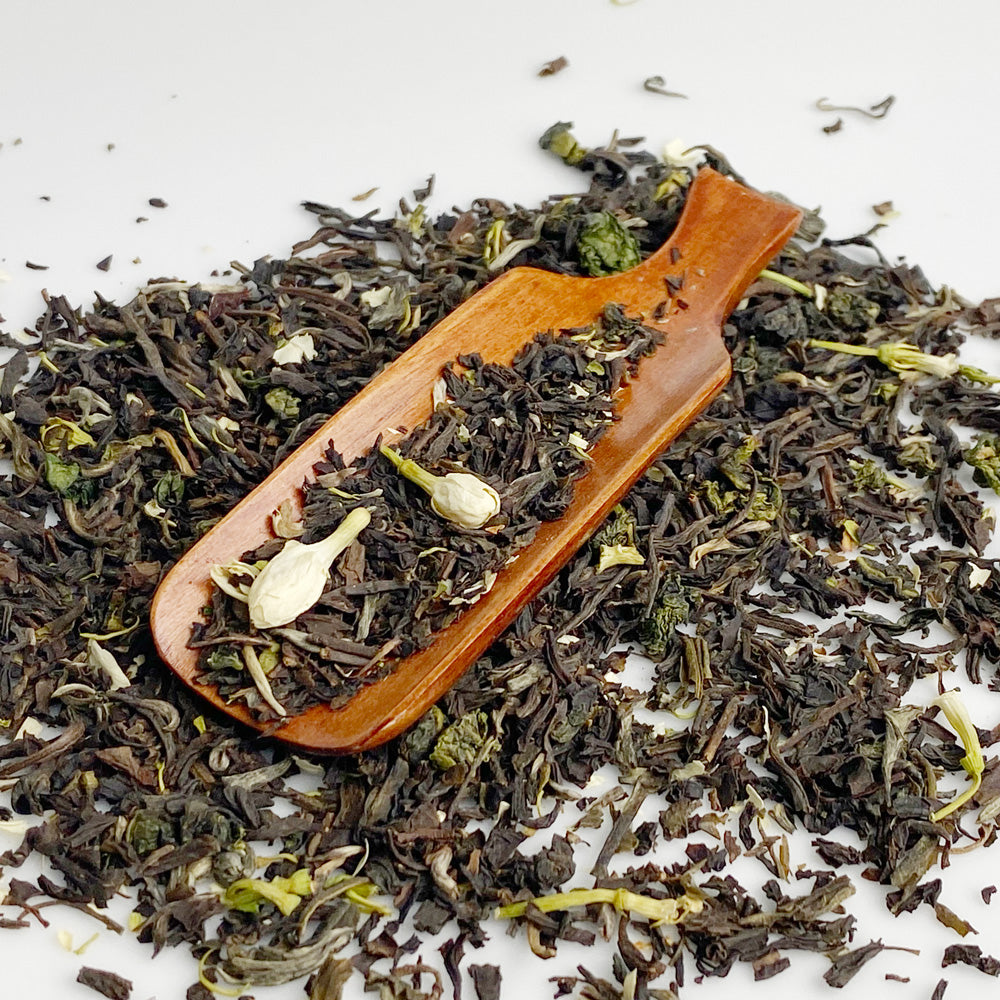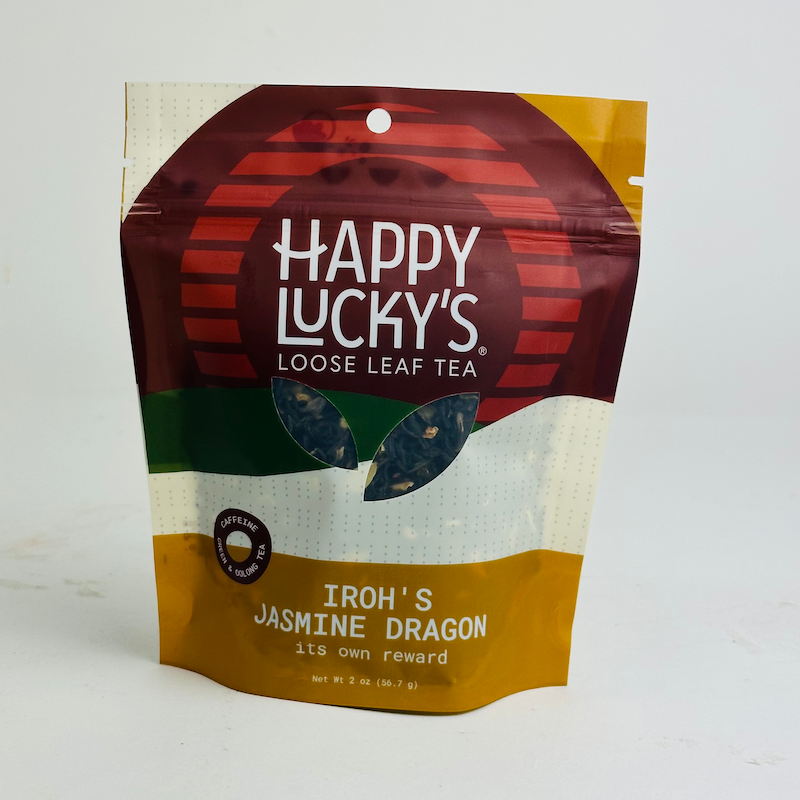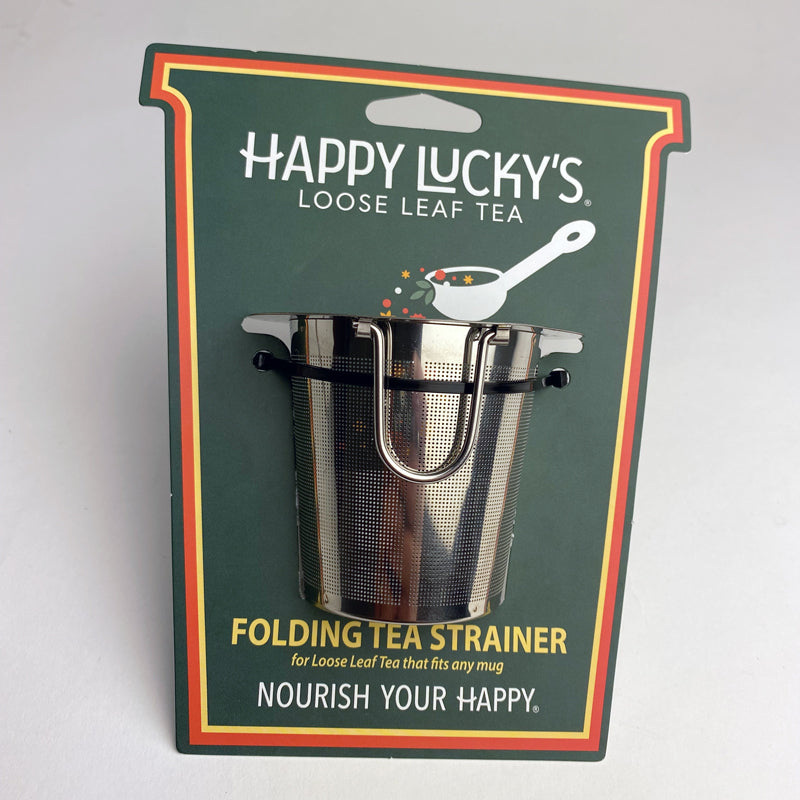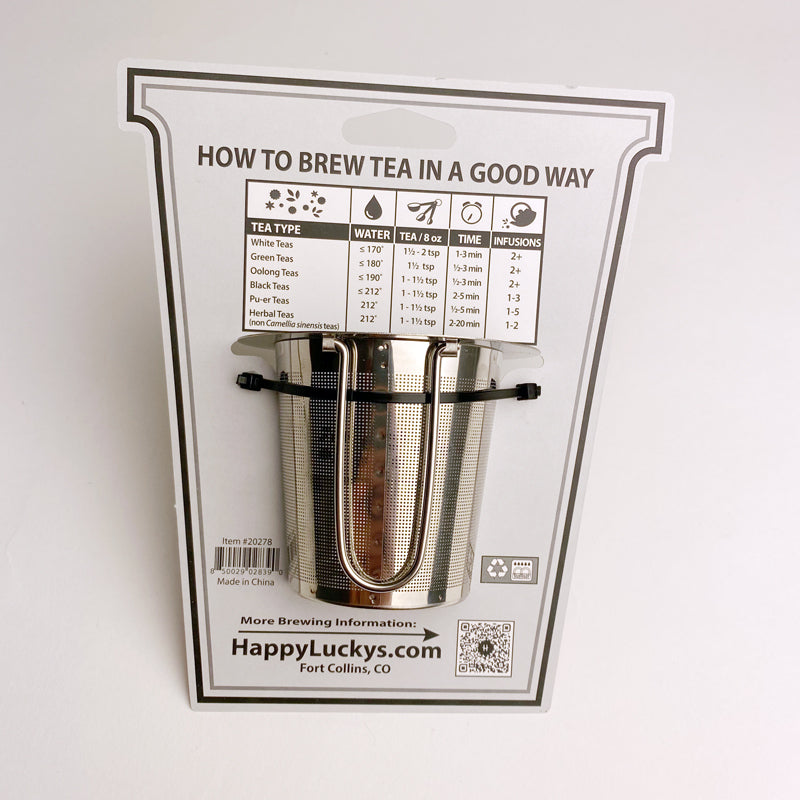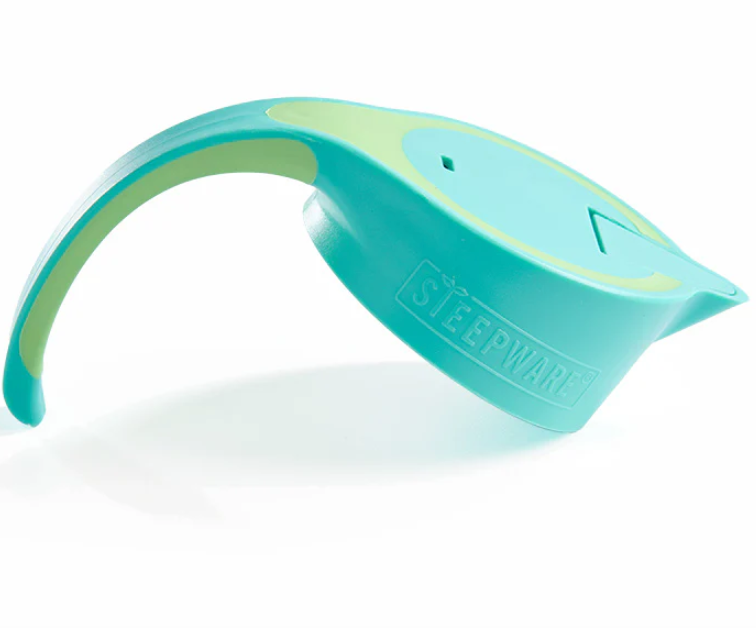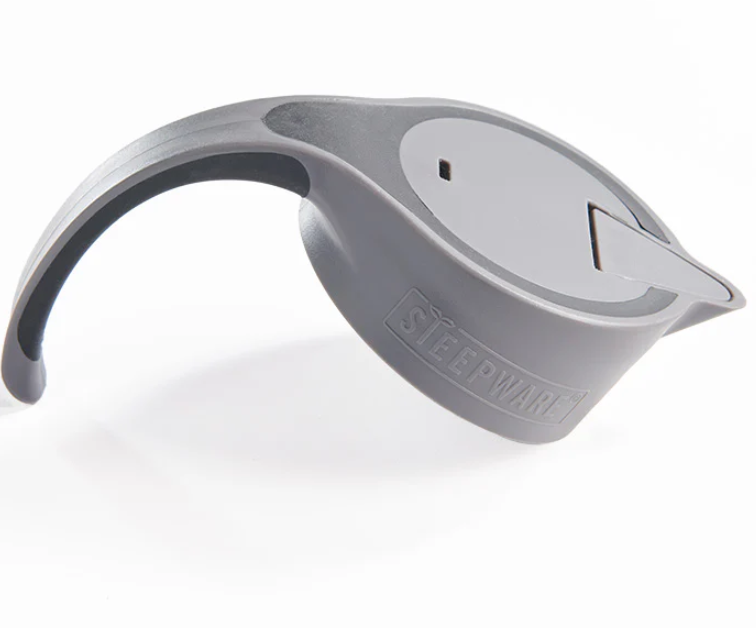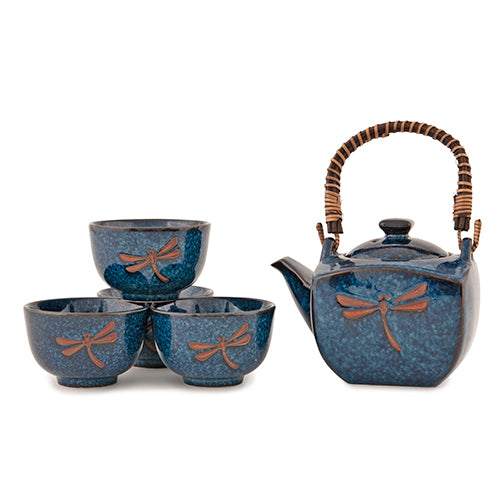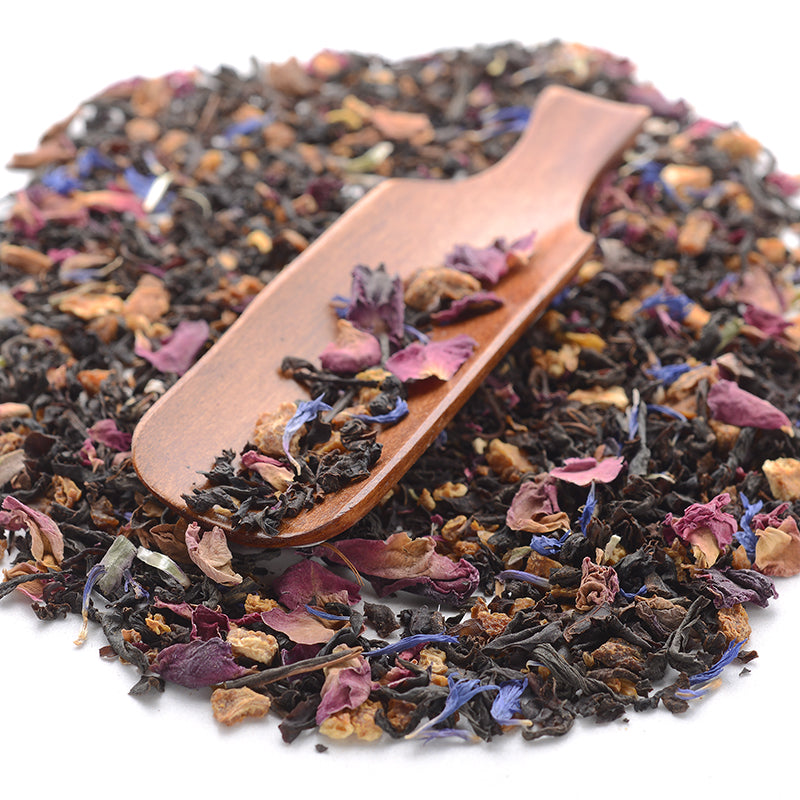Tea Knowledge
Tea Knowledge
So what is this thing we love so much called TEA? Can this one plant be the muse of poets, the source of mystery and wisdom, the torch of romance, and truly be the second most consumed beverage, after water, in the world? It's all that and more! Tea is a lifelong pursuit of story, flavor and adventure. Let's journey together.
Camellia sinensis was originally "discovered" in China and much later in the mid-19th century in Assam, in Northern India. Undisturbed it can grow into a tree between 15 and 50 feet tall. There are still many wild, semi-wild and ancient tea trees in China. Cultivated, the evergreen tea plants are pruned and nurtured into bush shape to enhance production.
Teas By Type
Camelia sinensis: One plant, many types of tea!
White, Green, Yellow, Oolong, Black, and Dark (Pu-er) - all tea types come from the same plant. That's what makes tea an international adventure! The basic steps of withering, oxidation control, rolling, firing, drying, grading/sorting and packaging are common steps among types. But the specifics of each processing method, some are secretive and passed only from family to family, estate to estate, garden to garden, yield its own tea type. Combine the seasonality of the harvest times throughout the growing year and the pluck (which leaves are actually picked) and the myriad of teas produced exhibit beautiful leaf shapes and colors, and amazing aromas and flavors. Add some fanciful and sometimes hard to pronounce names and welcome to the world of pure leaf tea!
With so many choices, there certainly is a flavor adventure waiting for those who choose to explore Teas By Type.
Note: All Camelia sinensis tea have caffeine.

Herbal Tea: Everything else brewed from a plant that is not Camelia sinensis.
Herbal Tea or tisanes are “teas” generally made from dried fruits and berries, herbs, spices, flowers, leaves and even roots of any plant that is not Camelia sinensis. Herbal teas are generally caffeine free, aromatic and flavorful. Throughout history, cultures have consumed herbal teas for medicine, ritual, and relaxation among other benefits. Herbal Blends can be simple or complex with a variety of flavors and effects.
We made some of our herbal blends with the intention of health benefits, others are purely for fun, flavor and enjoyment. The vast majority of Happy Lucky’s herbal blends are our own unique creation…we like to play with a colorful palette!
Note: Some Herbs have caffeine (Yerba Maté and Guayusa) but most do not.
Teas By Origin
Much like wine, the concept of terroir—the complete natural environment including the soil, topography, and climate—impart tea plants with unique flavors. Many factors: temperature and rainfall, shadow and light, soil, altitude and gradient of tea growing regions affect the flavor and characteristics of tea. It’s all the same plant, Camellia sinensis, but different varieties, cultivars and terroir are what make tea grown in different regions and countries so wonderfully varied. Even micro-climates within a tea garden will yield different flavors. The same "type" of tea with a similar leaf shape and processing will possess differing characteristics. This is what makes the journey so much fun. We invite you to explore by Tea By Origin.
Let's Talk Caffeine
How much caffeine is in tea? The amount of caffeine in tea is hotly debated. The short answer is...less than coffee. How much less is even more confusing. Caffeine is water soluble and is infused into the brew based upon water temperature and length of steeping. Additionally, the season of the pluck and which leaves are picked also affect caffeine level. Younger leaves and buds contain more caffeine per weight than older leaves and stems. To accurately calculate the amount of caffeine in tea would require each batch to be analyzed. The exact results wouldn't yield more info than levels 50%-85% less than coffee.
Plus when you add the amino acid, theanine, to the infusion the way the caffeine affects you will be different. In tea the stimulating effect can last up to 10 hours while coffee—aka the "bean" tea—produces that (in)famous spike and crash feeling.
Herbal Teas
Does Happy Lucky's have any decaffeinated tea? The simple answer is no, but don't be offended. Herbs such as Rooibos, Tulsi, Cocao "chocolate" tea create wonderful infusions on their own and when blended with other herbs, roots and spices. A whole new world of water infused herbal beverages, "tea", awaits.
